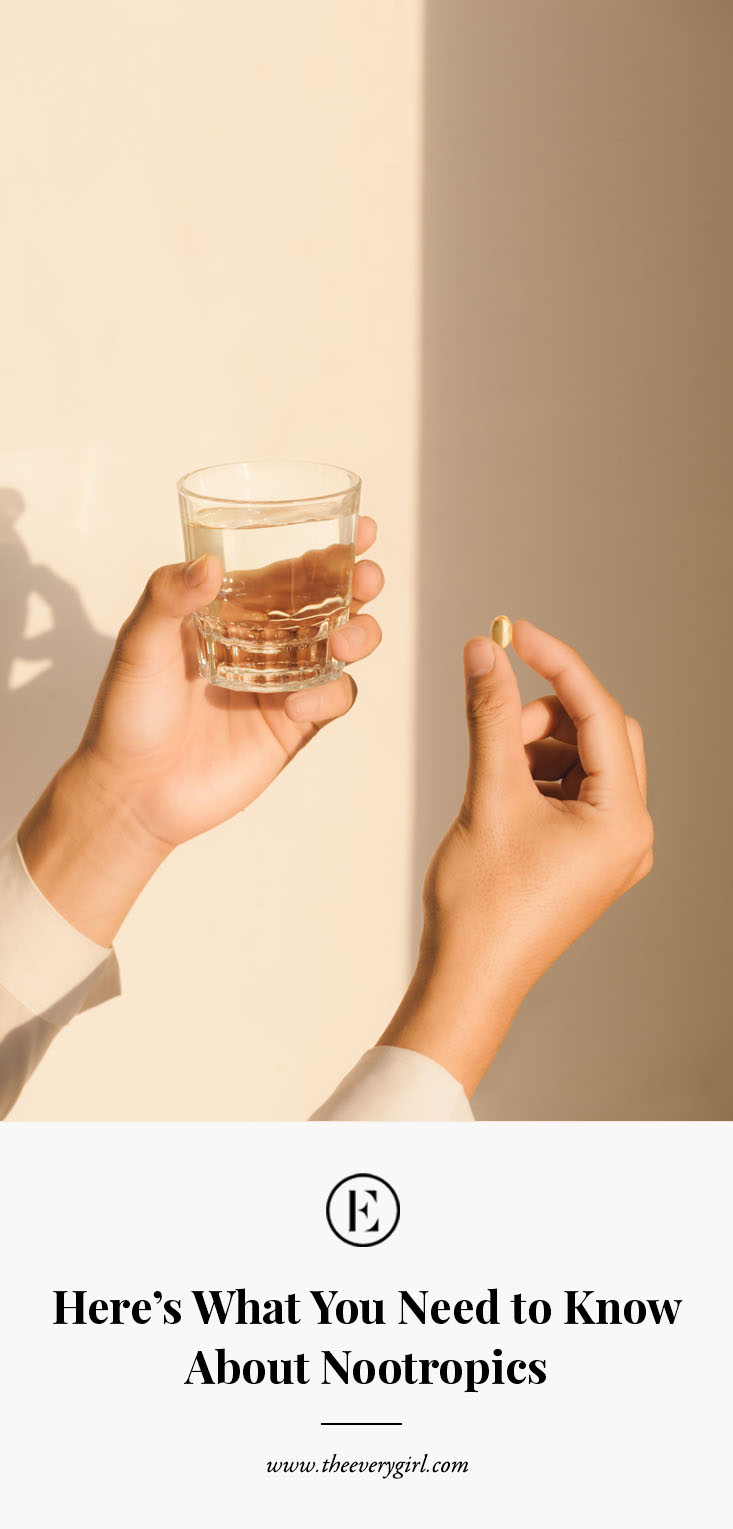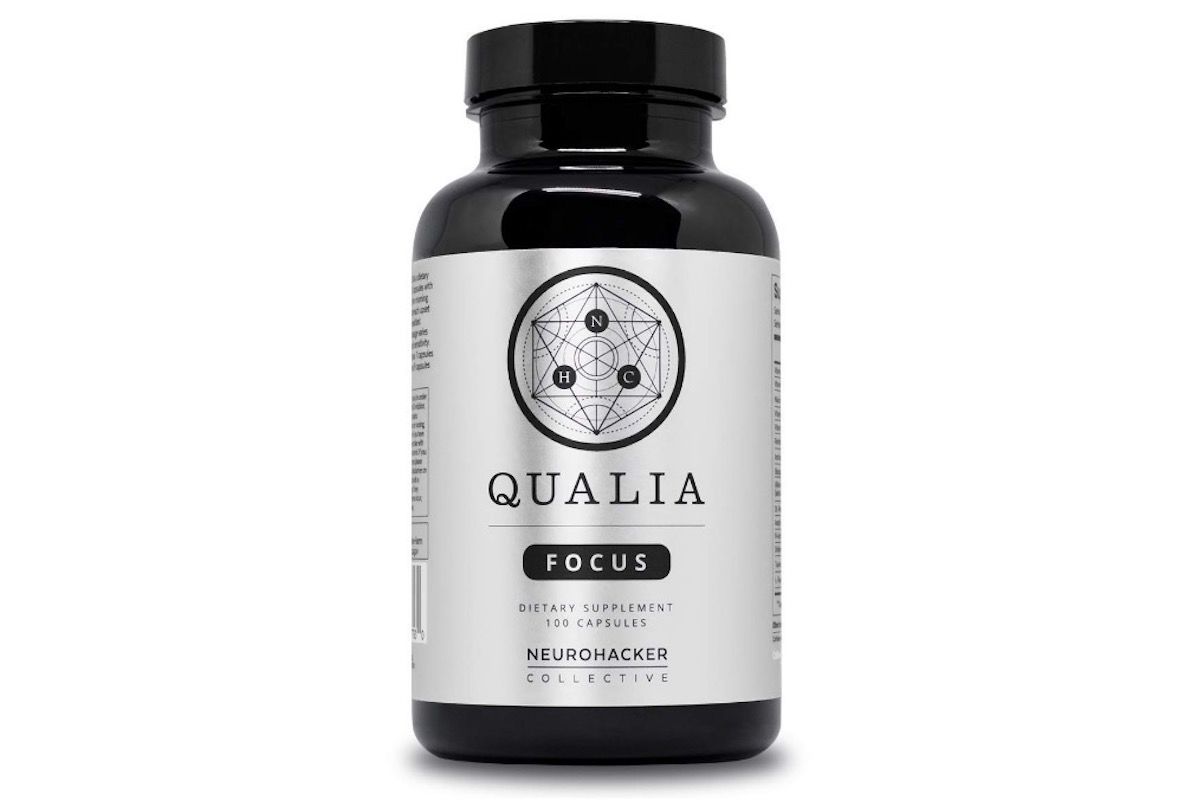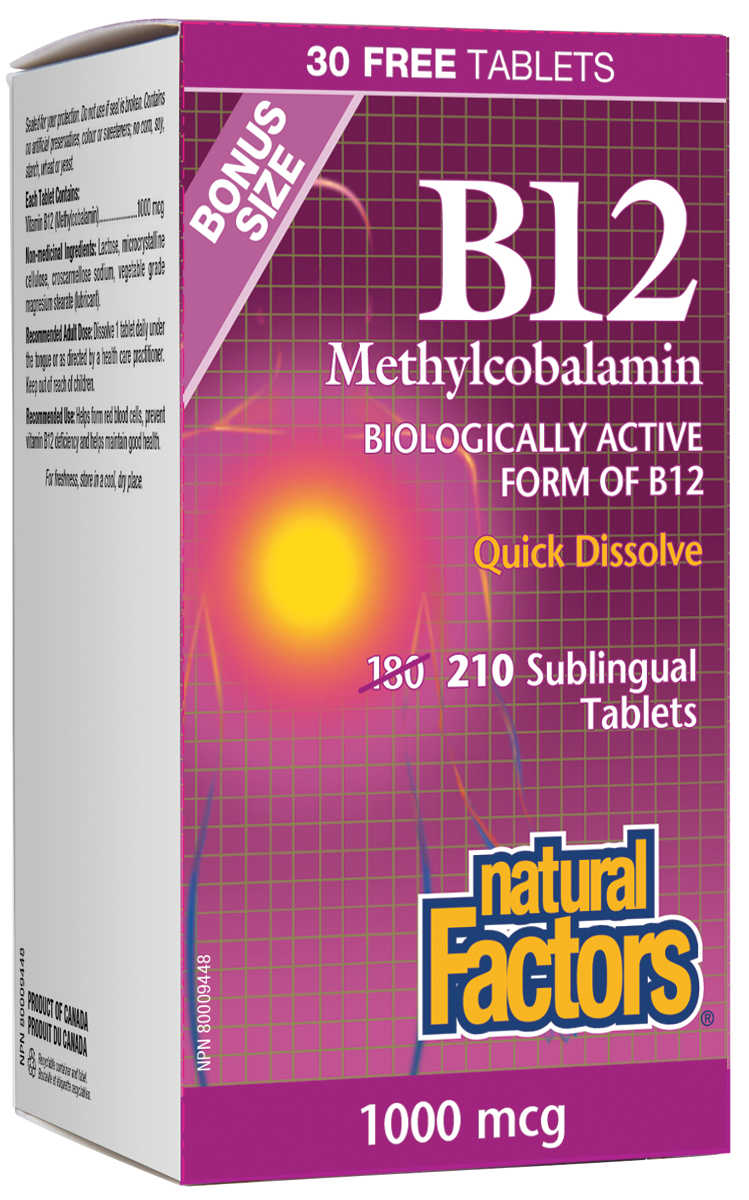Nature Knows and Psionic Success
God provides
15 Incredible Green Tea Benefits for Women

Green tea is one of the most prized types of tea in the whole world. With its low caffeine content, the drink is an excellent morning beverage for those that want to get an initial boost of energy without the adrenaline rush that can occur from high-caffeine drinks like coffee or energy drinks. Green tea is made from the leaves of the Camellia sinensis plant. Interestingly, the same flower is used to make oolong and black tea after a process of oxidation and withering. This type of tea, however, is made from the low-processed and dried Camellia sinensis leaves. This tea originally came from China where it spread through all of eastern Asia as one of the most prized beverages and part of the traditions of the east. Now, people all over the world enjoy this wonderful tea and experience the renowned health benefits from drinking it. ( 1 ) Green Tea Benefits for Women Has a Stimulating Effect Whether you are a mother of three or just a busy woman that needs to make it through her day, this tea is your natural answer to waking you up instantly. Because it contains caffeine inside, it will give you the boost that is usually derived from coffee early in the morning. The good news is that this type of tea has significantly less caffeine than other caffeinated beverages. This means no tossing through the night and no jittery side effects after a drink of it. Anti-cancer Properties This type of tea is very rich in antioxidants and particularly in Epigallocatechin gallate — one of the most powerful antioxidants known to man. Antioxidants fight off oxidative damage done by free radicals which is one of the leading causes of diseases and cell mutations. Constant drinking of this tea has shown […]
Easy Ways To Incorporate Nature Into Your Life To Save Your Mental Health

Feeling overwhelmed with your busy life? Anxiety over, well… everything? It’s okay—I’ve got the solution. Take a deep breath. Imagine yourself stepping into a garden. Your bare feet sink into soft green grass. Leafy trees rustle in the breeze and flowers bloom. Ahead of you, a stone fountain is trickling water, the sunlight dancing on the surface. The tension melts from your body, and your mind quietens. Welcome to the undeniable power of nature. Yes. Studies show that when we place leafy plants in offices, new employees adjust quicker. Children who are exposed to nature learn quicker, and express greater creativity. In hospitals, viewing natural landscapes and access to gardens helps patients heal faster and lowers self-reported pain. But, feeling connected to nature holds the real key to mental resilience and a sense of purpose in life. People with an ‘ecological’ sense of self were found to have better overall mental and physical health. It’s identifying with nature—rather than viewing humans as existing outside of it. For centuries, art, culture, and stories were interwoven with nature—but since the technology boom of the twentieth century, we’ve been growing ever distant from our organic roots. When we view ourselves as part of a wider ecosystem, we experience profound benefits from engaging with nature. We don’t just feel calmer, happier and healthier for surrounding ourselves with the natural world—we feel a sense of belonging and purpose too. Color isn’t just a trick of the mind; color is energy . It has a psychological and physiological effect upon us. When we see color, wavelengths of light hit our retinas; these vibrations are converted into electrical impulses that pass into our brain, evoking a biochemical and psychological response. This response can vary greatly depending on associations with specific colors—a memory, and cultural interpretations. Whether […]
Nootropics Are the Next Wellness Trend Everyone Will Be Talking About

Ah, yes, another wellness trend sweeping the nation, promising to change your life and/or empty your bank account. Nootropics, lovingly referred to as “ smart drugs ,” are the latest wellness supplement being sold at top retailers and being flashed on the feed of your favorite influencers’ Instagrams (in fact, t he nootropics market is expected to reach $6 billion by 2024 — now that’s trendy). Take Kin , for example. The now Instagram-famous and buzz-worthy drink has garnered attention and taste tests from the trendiest platforms for its promise to cut stress and produce bliss (without alcohol!) — it’s like you’re getting a buzz without the next-day hangover. Too good to be true? I’m not one to always buy into the latest trends (especially something nicknamed “smart drugs,” sounds sketchy?), but I have to admit — nootropics do sound promising. What are Nootropics? Nootropics only sound intimidating — they’re actually herbs, foods, and supplements that enhance brain power (like memory, function, etc.), and have protective benefits (keeping the brain sharp and functioning, especially as we age ). While the trend is popping up in supplement form, there are more than 80 different substances that can fall under the nootropics umbrella. Many food-derived ingredients that you’ve probably heard of are included, like omega-3s (shoutout to walnuts!) and flavonoids (a molecule in foods like blueberries and green tea). As a supplement, they have been used in Traditional Chinese Medicine for centuries as a way to optimize brain function. A pill that boosts human intelligence — sounds like science-fiction, doesn’t it? But there’s a lot more science than fiction to nootropics. Benefits: Enhancing brain function can mean decreasing mental fatigue, improving focus, boosting memory skills and reaction time, and overall feeling more alert. How exactly does this work, you ask? The […]
Ellen’s Answer to Work Stress

In 1862, the first year of the Civil War, Abraham Lincoln said, “With the fearful strain that is on me night and day, if I did not laugh, I should die.” Lincoln was well-known for his sense of humor, and had an acute awareness of its value in enabling him to endure the most trying of times. Although most of us don’t have the weight of a nation’s fate resting on our shoulders, we all have experienced work stress in some form. It’s a universal experience with the potential to significantly impact both mental and physical health. Stress occurs any time the body and mind are called upon to respond to a demand. It can arise from a one-time occurrence (such as a major accident or natural disaster) or one that is repeated over time (such as family and work stress). These experiences cause the body to go into fight-or-flight mode. Muscles become tense, respiratory rate increases, the pulse quickens, the brain uses more oxygen, and levels of stress hormones cortisol and adrenaline spike. The fight-or-flight response increases responsiveness to stressors to promote survival. But serious mental and physical health issues can develop if the stress is constant and long-term, as is the case with work stress. With chronic work stress, the repetitive stress response in the body can lead to increased rates of high blood pressure, heart disease, obesity, insomnia, irritability, headaches, anger, sadness, viral infections, depression, anxiety, and a number of other mental and physical ills. The APA’s recent Stress in America survey revealed that a majority of Americans cite work as a significant source of stress in their lives. Common work-related stressors include excessive workloads, conflicting demands, lack of control over one’s own work, work that isn’t challenging, work that isn’t meaningful, and low salaries. While […]
Expectant mothers can mitigate the impact of marijuana on baby’s brain development
A team of researchers led by members of the University of Colorado School of Medicine at the Anschutz Medical Campus found that choline, an essential micronutrient, can prevent fetal brain developmental problems that can occur when mothers use marijuana while pregnant. The findings are critical because marijuana use can negatively impact fetal brain development and early childhood behavior, such as increased impulsivity and memory dysfunction. The study was published today in Psychological Medicine . "In Colorado, it’s common for women to use marijuana before they know they’re pregnant and some continue to use as a natural remedy for morning sickness, depression and anxiety," said Camille Hoffman, MD, MSCS, associate professor of maternal fetal medicine, University of Colorado School of Medicine. "In this study, we found that maternal marijuana use begins to negatively impact the fetal brain at an earlier stage in pregnancy than we expected. However, we also found that eating choline-rich foods or taking choline as a supplement may protect the child from potential harm." Fifteen percent of 201 mothers in the study used marijuana both before and beyond 10 weeks gestation. Infants of mothers who continued to use marijuana beyond 10 weeks had decreased cerebral nervous system (brain) inhibition at one month of age. Decreased brain inhibition this early in development can relate to problems in attention and social function. Later in life, this can translate into a predisposition to conditions like substance abuse, depression and psychosis. In addition, infants exposed to prenatal marijuana beyond 10 weeks gestation had lower "regulation" scores at 3 months of age. This can cause decreased reading readiness at age 4, decreased conscientiousness and organization as well as increased distractibility as far out as age 9. These adverse effects in the infant were not seen if women had higher gestational choline in […]
Thrivous Launches Surge, the Acute Nootropic
"Surge is a powerful combination of nootropic ingredients," said Lincoln Cannon, CEO at Thrivous. "It’s more than the sum of its parts. Although each ingredient is an effective nootropic on its own, clinical research has shown that supplementing them together can result in even greater cognitive benefits, in part by mitigating side effects that some people experience when consuming stimulants like caffeine." Guided by science, Thrivous identifies nootropic ingredients with the greatest potential to promote mental performance beyond what can be achieved through traditional lifestyle choices alone. Surge contains ingredients at concentrations and amounts based on high levels of evidence for notable effect from peer-reviewed, double-blind, placebo-controlled studies on humans. Thrivous makes Surge from substances in the human diet, including herbs, alkaloids, and amino acids. It does not contain substances derived from animals. All ingredients and capsules are vegan. Ingredients include Caffeine, L-Theanine, and Panax Ginseng. Caffeine is an alkaloid extracted from plants. Supplementation may increase energy. L-Theanine is an amino acid found in plant and fungal species. Supplementation may reduce side effects from Caffeine. Panax Ginseng is a slow-growing perennial plant native to North America and eastern Asia. Supplementation may improve focus. Although many vendors hide their product formulas and ingredient test results, Thrivous does not. Surge has an open formula with ingredient dosages clearly indicated on its label. Thrivous also publishes a certificate of analysis and quality for Surge, sharing all test results from suppliers and manufacturers. Suppliers subject each ingredient to stringent quality testing, including identity, potency, microbial, heavy metals, and other testing as appropriate prior to release for manufacturing. Manufacturers follow strict GMP regulation from the FDA in audited and certified facilities. They monitor production and test finished product to ensure quality prior to release for shipping. Statements in this press release have not been […]
Mobile phones and 5G networks are accelerating the mass dumbing down of humanity… and it’s all by design

( Natural News ) The mass dumbing down of humanity is being deliberately accelerated, and mobile computing devices are one of the primary causes. Instead of people retaining knowledge in their own consciousness, everybody becomes a “vessel” to be controlled by remote information that’s fed into their brains by mobile devices. Those mobile devices, in turn, are controlled by the internet gatekeepers like Google and Wikipedia, all of which are actively invested in destroying human knowledge and controlling “official” narratives to keep the public illiterate. Google is a massive criminal enterprise that now works with communist China to undermine the United States of America by carrying out acts of pure treason . The mass dumbing down is further accelerated by 5G radiation exposure which causes brain tumors and neurological stress. In effect, the telecommunications infrastructure “frazzles” the brain, which helps explain why so many of the deranged, hallucinating Leftists are found in high population density cities where 5G has already been rolled out. On top of all that, the masses are being lobotomized with mercury in flu shots (yes, there’s still mercury in vaccines), aluminum in foods, and toxic TV programming that assaults the mind with fake news like “the Russians stole the election” or “carbon dioxide is bad for plants.” The capacity to remember is being “zapped” away, so that no one can remember what happened just a few months ago Where individuals were once intelligent, self-reliant and had functioning memories and logical thinking, the masses are now stupid, entirely dependent and have no memories whatsoever. The average American can’t even remember the news headlines from six months ago, which is why the corporate-controlled media can flip the narrative every few months and no one seems to notice. For example, remember when CNN and the Democrats all claimed […]
Expectant mothers can mitigate the impact of marijuana on baby’s brain development

Credit: CC0 Public Domain A team of researchers led by members of the University of Colorado School of Medicine at the Anschutz Medical Campus found that choline, an essential micronutrient, can prevent fetal brain developmental problems that can occur when mothers use marijuana while pregnant. The findings are critical because marijuana use can negatively impact fetal brain development and early childhood behavior, such as increased impulsivity and memory dysfunction. The study was published today in Psychological Medicine . "In Colorado, it’s common for women to use marijuana before they know they’re pregnant and some continue to use as a natural remedy for morning sickness, depression and anxiety," said Camille Hoffman, MD, MSCS, associate professor of maternal fetal medicine, University of Colorado School of Medicine. "In this study, we found that maternal marijuana use begins to negatively impact the fetal brain at an earlier stage in pregnancy than we expected. However, we also found that eating choline -rich foods or taking choline as a supplement may protect the child from potential harm." Fifteen percent of 201 mothers in the study used marijuana both before and beyond 10 weeks gestation. Infants of mothers who continued to use marijuana beyond 10 weeks had decreased cerebral nervous system (brain) inhibition at one month of age. Decreased brain inhibition this early in development can relate to problems in attention and social function. Later in life, this can translate into a predisposition to conditions like substance abuse , depression and psychosis. In addition, infants exposed to prenatal marijuana beyond 10 weeks gestation had lower "regulation" scores at 3 months of age. This can cause decreased reading readiness at age 4, decreased conscientiousness and organization as well as increased distractibility as far out as age 9. These adverse effects in the infant were not seen if […]
Why Do You Get Tired After Sex? 9 Things You Never Knew About Orgasms, According To Experts
The orgasm is a wonder of the body that deserves celebration, and thankfully, we have that very opportunity coming up soon. On July 31, the country can indeed rejoice in National Orgasm Day! To honor this fine event, it’s time to learn some facts about orgasms , and the benefits and mysteries these physical explosions entail. Interestingly, while orgasms are a natural function of the body, you nevertheless have to learn to have them, sexologist Dr. Carol Queen PhD, of Good Vibrations , who is also the curator of the Antique Vibrator Museum, tells Bustle. "Your orgasmic ability now might change over time, with more experience." Queen also points out that what she calls " blended orgasms " are often suggested by sex therapists, which means you don’t just have to focus on the genitals to get there. "These involve adding two erotic areas together, like stimulating the clitoris and the nipples at the same time," Queen says. Sounds fun, right? So go forth and figure out for yourself what it is your body and mind are asking for when it comes to, you know, coming. Below some experts share some unusual and enlightening facts about orgasms that will make you an expert on the subject yourself. 1. People With Penises Have Shorter Orgasms Although each orgasm is a world of sensational possibility for each person, generally, what is happening in the body is a similar physical response no matter who you are — but there is a difference in orgasm length between people with penises and vulvas. People with vulvas may have orgasms that are twice as long as orgasms by people with penises, clinical psychologist Daniel Sher, who is a consultant for the Between Us Clinic an online sex-therapy program for men and couples, tells Bustle. On […]
Want Brain-Boosting Nootropics That Actually Work? Here They Are.

A lot of nutritional supplement companies market nootropics as miracle smart drugs, making all sorts of unfounded claims about what they can do. However, there are some companies that take things like “science” and “research” seriously. And one of them is the California-based Neurohacker Collective , whose Qualia Focus and Qualia Mind are two of the best researched, most effective nootropics supplements on the market. In case you haven’t heard, while studies show nootropics supplements can boost cognitive performance—particularly executive functions like focus, memory, willpower, and creativity—there’s nothing “miraculous” about them. The so-called “smart drugs” are simply amino acids, nutrients, minerals, and other compounds that the brain uses as fuel for cognition. We mostly get this fuel from our diet, and some, like caffeine or L-theanine, we get from things like coffee and tea every day. However, there are a lot of other nootropics that we never get because the modern Western diet has never incorporated them into our common diet culture: natural ingredients from plants, roots, seeds, and minerals like rhodiola, bacopa, and celastrus seed extract, just to name a few. So how do you get more of these brain-boosting substances into our bodies? With supplements, of course. The problem is making an effective nootropics supplement is not as easy as some companies would have you believe. You can’t just take a kitchen sink approach, throw a bunch of nootropics together, and call it a smart drug. Coming up with an effective nootropics supplement requires a deep understanding of neuroscience, and the complex interplay and synergy between specific ingredients at specific dosages. That’s what sets Neurohacker Collective apart from other companies. Neurohacker Collective’s team of scientists and medical professionals prides itself on its whole systems approach to science. That means they study the interrelation between all systems in […]
Why You Should Consider A CBD Oil Massage
Pure CBD oil is no longer a secret term, it’s all over the internet as well as a part of discussion in masses. Its consistent use in areas like vaping, anti-aging cream , and ability to treat anxiety in pets are the new consideration. Talking about its latest buzz, the spa world also acknowledged the benefits of CBD oil drops for natural relaxation . Yes, that is what is making the spa world shine with benefits of pain cream and CBD oil. It is a blend of ingredients that prove to be a pain reliever and product of wellness and quality of life. CBD oil has an endless list of benefits that promote wellness and healthy human life. In fact, massage cream infused with CBD oil turns out to be organic CBD massage oil that is inherently therapeutic for body, mind, and soul. So, look for pure CBD oil for pain the next time you book a massage appointment. The Connection Between CBD Oil and Massage Therapy Bodily pain, tiredness, and anxiety are some of the prevalent issues that come with a busy daily life. Massage is one of the relaxing sessions that relieved us from a busy day and unlocked the healing body impacts. What if CBD is added to a massage oil? CBD is now regarded as one of the natural health assets. Quality CBD oil added to massage boosts soul-soothing and body-healing impacts. Quality CBD products included massage oils have been shown to help accelerate body and mind recovery as well as healing impacts. How Does CBD Massage Oil Work? It is no longer concealed that CBD balm, CBD oil capsules, CBD pills, or other CBD products work with the endocannabinoid system to pursue the benefits in humans. This system is a component of a physiological […]
Beacon of HOPE Wellness Committee: Do you have trouble sleeping?
If you do, you’re not alone. Studies show that 30-40% of people will have significant insomnia at some point in their lives. It could be tossing and turning a night or two a week up to chronic insomnia, which is when you have difficulty falling asleep or staying asleep at least 3 nights a week for 3 months. We know that sleep is an important part of being healthy and feeling good. Dr. Lawrence Epstein of Harvard Medical School says that those who don’t get enough sleep are more likely to develop diabetes, high blood pressure and heart disease. Insufficient sleep is associated with weight gain. Lack of sleep affects your thinking, reaction time, memory, concentration and your physical functioning. So what is considered a good night’s sleep? In general, it’s between 6 and 9 hours a night. The ultimate guideline for determining how much sleep you need is how rested you feel during the day. Why aren’t you sleeping well? Identify any factors that may be affecting your sleep. Look at your medications. Do you have chronic problems such as sleep apnea, restless leg syndrome, B12 deficiency, lung problems, heartburn. See your doctor and discuss these issues. It is a general consensus among specialists that insomnia is best treated without drugs. Sleeping pills should generally be used for only four to six weeks. So what can we do to get a good night’s sleep? 1. Create rituals around sleep. Make a habit of going to bed and getting up at the same time each day. This consistency reinforces your body’s natural sleep-wake cycle. If you get enough sleep you shouldn’t need an alarm clock. If you’re tired in the morning, avoid sleeping in. Take a nap of 15-30 minutes in early afternoon instead. Get in the habit of […]
6 research-backed ways to avoid Alzheimer’s no matter what your genes say

Alzheimer’s disease is one of the diseases we fear most as we get older. The prospect of slowly losing one’s ability to think, to remember, and to recognize the faces of those we love is terrifying. There is much research that links hereditary factors with developing the disease. While this isn’t written in stone, there are certain things we do know. There are particular genes that scientists can “read” to determine, at least broadly, what your risk level is for developing the disease. But researchers have also found that the “high-risk” version of this gene actually responds more favorably to certain lifestyle changes that we can implement in order to lower our risk. So, here’s a “plain talk” explanation of the genetic factors that either increase or decrease your risk, along with some ways you can outsmart your genes and stay clear of Alzheimer’s. Your genes determine your risk… Your chromosomes are your genetic encoding material. They’re like a map that determines things like hair and eye color but also can tell you how vulnerable you are to various diseases, including Alzheimer’s. Apolipoprotein E, or APOE , is a gene that’s associated with varying levels of risk for developing Alzheimer’s. Your risk level depends on which allele of the APOE gene you have. (Alleles are simply alternative forms of a gene that are found at the same spot on a chromosome.) There are three different alleles of the APOE gene: APOE2, APOE3, and APOE4. Each of us has two of these alleles, in one of six possible combinations: APOE2/APOE2, APOE2/APOE3, APOE2/APOE4, APOE3/APOE3, APOE3/APOE4, or APOE4/APOE4. Depending on which combination you’ve drawn, your risk for developing Alzheimer’s is either pretty low, average, or pretty high. APOE2 is rare and is associated with a reduced risk of Alzheimer’s. APOE3 is the […]
Should the use of nutritional supplements continue in society?

Efficient consumable food products to ensure better health 1.The Methylcobalamin 1000mcg Chewable Vitamin B12 from Natural Factors offers energy support. The product makes use of vegetarian resources for vitamin B12 to provide better access. The body makes use of vitamin B12 for the production of red blood cells. The natural factors b12 offers methylated B12, which is easily absorbable and active. However, the product provides with chewable tablets so, the unnecessary hassle of injections do not exist. The Methylcobalamin maintains high levels of blood and can absorb swiftly. The product offers better memory and learning, as it supports the nervous system. The Methylcobalamin improves immune function and controls the levels of homocysteine. The product promotes the proper function of the nerves and brain. It can develop alertness among the elderly or shift-workers. 2. The peanut butter contains high levels of fat and calories. But these foods carry specific nutrients that can extend the levels of blood sugar and improve cardiac conditions. The use of this butter can either loose or gain weight. The peanut butter and jam bars offer different health benefits for the consumers. Fruit jams are full of minerals, vitamins, natural fibers, amino acids, and other nutrients. These food products help in stress management and reduce stress as they offer energy. Similarly, the subsequent risk of cardiovascular ailments like cardiac arrests or stroke can reduce. 3. The almond flour product made of nut flour and pure almond nuts. The flour is free from gluten.The almond flour acts as a substitute of wheat flour substitute with reduced carbohydrates.Dough made from almond flour will not work like traditional flours since almonds do not contain gluten. The common ingredients used in its production are eggs, protein powder, and ground psyllium husk powder. For where do they sell almond flour queries, […]
Expectant mothers can mitigate the impact of marijuana on baby’s brain development

pixabay baby-933097_960_720 A team of researchers led by members of the University of Colorado School of Medicine at the Anschutz Medical Campus found that choline, an essential micronutrient, can prevent fetal brain developmental problems that can occur when mothers use marijuana while pregnant. The findings are critical because marijuana use can negatively impact fetal brain development and early childhood behavior, such as increased impulsivity and memory dysfunction. The study was published today in Psychological Medicine . “In Colorado, it’s common for women to use marijuana before they know they’re pregnant and some continue to use as a natural remedy for morning sickness, depression and anxiety,” said Camille Hoffman, MD, MSCS, associate professor of maternal fetal medicine, University of Colorado School of Medicine. “In this study, we found that maternal marijuana use begins to negatively impact the fetal brain at an earlier stage in pregnancy than we expected. However, we also found that eating choline-rich foods or taking choline as a supplement may protect the child from potential harm.” Fifteen percent of 201 mothers in the study used marijuana both before and beyond 10 weeks gestation. Infants of mothers who continued to use marijuana beyond 10 weeks had decreased cerebral nervous system (brain) inhibition at one month of age. Decreased brain inhibition this early in development can relate to problems in attention and social function. Later in life, this can translate into a predisposition to conditions like substance abuse, depression and psychosis. In addition, infants exposed to prenatal marijuana beyond 10 weeks gestation had lower “regulation” scores at 3 months of age. This can cause decreased reading readiness at age 4, decreased conscientiousness and organization as well as increased distractibility as far out as age 9. These adverse effects in the infant were not seen if women had higher gestational […]
EMFs linked to MASSIVE decline in global health

( Natural News ) The topic of electromagnetic field (EMF) dangers has been the subject of great debate over the years, but never has it seemed more pressing than now, as we face the transition into high-tech 5G technology. With smart home devices and utility meters becoming part and parcel of our daily lives, the potential for harm is significant – and EMFs have already been linked to a massive decline in global health . First, many people will argue that the sun naturally emits some EMFs, but our exposure to artificial EMFs has reached unprecedented heights. Low-frequency EMF radiation , which encompasses that given off by smart meters, cell phones, Bluetooth, power lines, MRIs, and microwaves, has been listed as a class 2B probable carcinogen by the International Agency for Research on Cancer – right alongside indisputable dangers like lead and DDT. It’s not just cancer that we need to worry about however, as people can experience a host of unpleasant symptoms after prolonged exposure. It’s more than a coincidence that so many people experience these problems just as technology takes over our lives. In fact, 27 percent of American children are now said to live with chronic health conditions that impact their daily activities, while 60 percent of adults have at least one chronic condition and 42 percent experience multiple chronic conditions. The health problems that people can experience from this exposure have even been given a name, electromagnetic hypersensitivity. Its symptoms can include vertigo, fatigue, sleep problems, depression, dizziness, trouble concentrating, anxiety, mood swings, mental decline, irritability, involuntary twitching, and slower healing from infections. Discover how to prevent and reverse heart disease (and other cardio related events) with this free ebook : Written by popular Natural News writer Vicki Batt, this book includes everything you need […]
Can Alzheimer’s Disease Be Cured Naturally?

Emerging research gives us clues about the best ways to naturally stop Alzheimer’s disease in its tracks or slow it down. Read on for a full breakdown of lifestyle changes, supplements, dietary approaches that may help. We currently don’t have a cure for Alzheimer’s disease (AD). However, we don’t really have a cure for most chronic diseases. Alzheimer’s disease sounds like the worst thing you could be diagnosed with. In truth, many targeted natural strategies outlined below can improve your brain health and potentially slow the disease down. Even if you don’t have Alzheimer’s disease, these strategies are important for enhancing brain health. The main idea is that living a healthy lifestyle, eating nutritious foods, getting quality sleep, and engaging in exercise is critical for maintaining a healthy brain – and sharp memory – as we age [ 1 , 2 , 3 , 4 ]. Review studies show that exercise can help patients with Alzheimer’s disease. It improves cognitive function, boosts mood, and slows the rate of decline in the patient’s ability to take care of themselves [ 5 , 6 , 7 , 8 , 9 , 10 ]. In a trial of 50 patients with mild Alzheimer’s disease (aged 50-80 years), aerobic exercise (cardio) improved cognitive function and quality of life after 3 months of training [ 11 ]. In another trial of 76 older people with probable Alzheimer’s, aerobic exercise improved memory and reduced shrinkage of the hippocampus after 26 weeks. The hippocampus is the brain’s main hub for memory and emotions, and it drastically shrinks in people with Alzheimer’s [ 10 ]. Patients with Alzheimer’s disease who took walks regularly had reduced symptoms of depression and found it easier to perform their daily activities, according to a trial of 26 people. A physical training […]
13 Natural Strategies for Alzheimer’s Disease Prevention

Many evidence-based natural strategies can help prevent Alzheimer’s disease. Read on to learn how to change your lifestyle and supplements regimen to minimize your risk of Alzheimer’s and support your brain health. Alzheimer’s disease sounds like the worst possible disease you could be at risk of. The disease itself is complex, and scientists are still trying to understand its causes and course. On top of that, it gradually progresses to completely destroy brain function, causing severe memory loss [ 1 ]. Though Alzheimer’s is commonly diagnosed in people over 65 years old, many people nowadays start to experience signs of cognitive decline at a much younger age. For this reason, Alzheimer’s is now being reframed as a disease of the modern, sedentary, unhealthy lifestyle–much like obesity and type 2 diabetes [ 2 ]. Just as you need to watch your intake of salt and saturated fats to reduce your heart disease risk, so you need to make sure you are giving your brain the nutrients it needs to work at its best. This way, you’re shifting your “brain environment” to one that offsets Alzheimer’s and other neurodegenerative diseases. Plus, type 2 diabetes and heart disease are strongly linked to the development of Alzheimer’s disease. You can prevent them by eating a healthy diet and exercising. By lowering your risk of one chronic disease, you also lower your risk of many others–killing two birds with one stone [ 3 , 4 , 5 , 6 ]. The right time for Alzheimer’s disease prevention is as soon as possible–it’s never too early. By reading this post, you’ll have the basic guidance you need. That means you should start right now. Small brain changes in Alzheimer’s disease occur 20 years before people experience the first symptoms. It’s probably at this stage – […]
What Are Nootropics?
Whether you’re a college student hoping to ace your exams, a busy professional striving for a promotion, or an older adult concerned about dementia , the idea of popping a pill that boosts your brainpower might seem pretty appealing. So perhaps it’s not surprising that the use of nootropics — aka cognitive enhancers or smart drugs — is on the rise. But do they work? And are they safe? The term "nootropics" first referred to chemicals that met very specific criteria. But now it’s used to refer to any natural or synthetic substance that may have a positive impact on mental skills. In general, nootropics fall into three general categories: dietary supplements , synthetic compounds, and prescription drugs . While health experts generally agree that taking a prescription nootropic for an FDA-approved purpose (such as a stimulant medication if you have ADHD or donepezil if you have Alzheimer’s) may be helpful, the use of any type of cognitive enhancer in healthy people is far more controversial. What Researchers Say Barry Gordon, MD, PhD, director of the cognitive neurology/neuropsychology division at Johns Hopkins Medicine, says there’s "no strong evidence" that any of the supplements now being sold for their supposed memory-boosting powers are helpful. "It’s not clear that they work and not clear that they’re safe," he says. He’s also skeptical of the basic premise behind nootropics. "The circuits that are involved in human cognition are very complicated and not fully understood," he says. "You can’t just ‘turn up the dial’ that easily." He notes that people who believe their mental performance has increased thanks to nootropics are largely being influenced by a placebo effect. "If you’re more confident and think you’ll do better, you will do better." Chris D’Adamo, PhD, director of research and education at the University of […]
Best supplements: The best supplements for boosting the brain’s function and staying alert

Just as athletes take supplements to enhance their physical performance, some people hope to sharpen their wits, memory and stave off diseases with brain boosters. Doctor Ray Swahilian said: “The best supplements for the brain could mean several things. It could mean herbs or nutrients that enhance clarity of thinking, alertness, focus, concentration, memory, and even mood. Most commonly, people will notice that they are more focused and alert, that they are more motivated, that they are processing information faster. Some have tried and have gotten benefits. Others may not have noticed anything.” Best supplements: Could vitamin D supplements help improve insulin … Best supplements for diabetes: Supplement proven to lower blood sugar Ginkgo biloba has had a lot of research in its benefits to the brain. Gingko biloba is found in the leaves of ginkgo trees which is native to China and one of the oldest plants on the planet. Ginkgo has gained a lot of interest by researchers because of its potential to treat Alzheimer’s disease and age-related mental decline. In a study with the BMJ , ginkgo biloba was proven to be more effective than using an aspirin alone, according to clinical trial results. According to BMJ website: “The herbal extract may be more effective at boosting memory and the brain’s command and control function in stroke survivors. "Gingko biloba extract has long been used as a traditional herbal treatment in China for a range of conditions, including depression, memory loss, and confusion, and is widely available as a food supplement.” It’s believed that ginkgo works by thinning the blood and thereby improving oxygen flow to the brain. Huperzine-A is another popular Chinese supplement for the brain and has been studies as a potential Alzheimer’s therapy. It may also work as a brain booster in healthy […]
